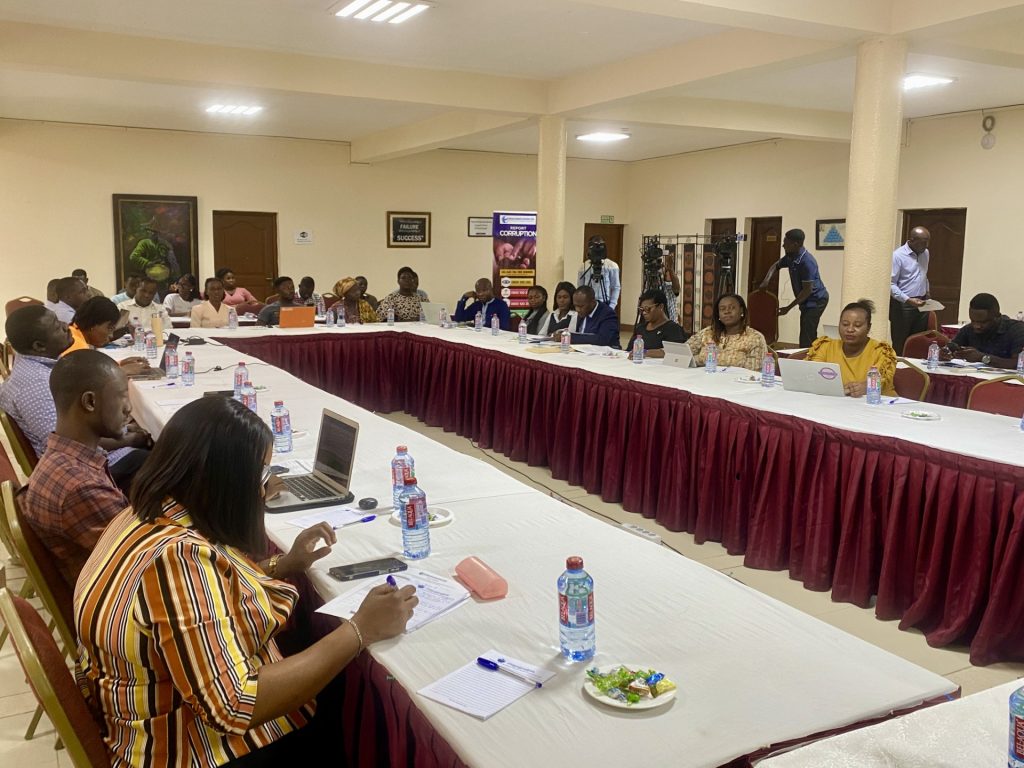By Eric Appah Marfo
Accra, May 18, GNA – Mr Raphael Hokey, Head of Regional Operations Unit, Land Commission, has advocated for the representation of women on Traditional Land Committees for their inputs on land matters.
He urged communities to collectively push for such involvement of women and respect for their suggestions during decision making on community lands.
“The Queen mother also has a stake in community land. I know it is not easy, but we have to keep making noise about this advocacy until it is accepted into our system,” he said.
Mr Hokey made the call on Thursday during a National Expert Dialogue on Large-Scale Land-Based Investment (LSLBI) Guidelines in Ghana.
The event, organised by the Ghana Integrity Initiative (GII) in Accra, brought together key stakeholders for an insightful discussion leading to effective and enforceable guidelines for (LSLBIs) in Ghana.
He promised to add his voice to the advocacy at the Commission level to strengthen female representation at the Customary Land Secretariat.
Mr Hokey said public education on land matters was an unending activity which needed all hands-on deck.
He urged stakeholders to support the Commission to carry out such sensitisation programmes.

Mrs Mary Awelana Addah, Executive Director of GII, in her welcoming address, said land was not only a vital economic resource but also a cornerstone of heritage, identity, and livelihood for millions of Ghanaians.
She said the evolving dynamics of global food demands and economic development had ushered in a new era of large-scale land acquisitions.
Mrs Addah said while these investments held the promise of enhanced food production and economic growth, they also presented a complex set of challenges, as documented by the International Land Coalition (ILC).
“As highlighted by the ILC, issues like corruption, unequal land access for women, and environmental sustainability concerns threaten to overshadow the potential benefits.”
“Furthermore, a lack of public awareness and stakeholder engagement can exacerbate these challenges, hindering the realization of transparent, equitable, and sustainable land investments.”
Mamaga Agumekosua V, Paramount Queen Mother of Logba Traditional Area, bemoaned the failure of stakeholders to implement policies and called for the firm enforcement of laws on land acquisition.
“No one seems to take responsibility for the implementation of all existing laws. We always meet to make policies but struggle to implement them. If enforcement is done well, it would prevent land disputes and its associated corruption,” she said.
Mamaga Agumekosua V, also the Secretary to the Volta Region Queen Mothers Association, attributed some land disputes to the exclusion of women during negotiation with land buyers.
“On many occasions, meetings with investors seeking to acquire a piece of land are done clandestinely without the involvement of the Queen mother. At the end of the day, you’ll see someone come to your area to start a project without your knowledge.”
“This causes tension in the family because there are family members who support the Queen mother and want to ensure that no one is left behind in the negotiation process.”
She said at other times, Traditional Authorities were misinformed about the real intentions of investors.
Miss Lois Aduamoah-Addo, Programme Manager, WILDAF Ghana, said land laws should be made accessible and simplified for all to read and understand.
She said deliberate actions should be made to make it easy for women, persons with disabilities and vulnerable groups to partake in discussions on land acquisition and its use.
GNA